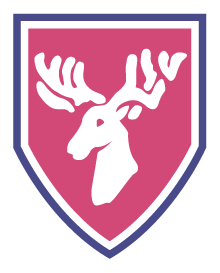Physical Development
At our school we intend to inspire all children to develop a love of physical activity and sport. We aim to nurture confident, resilient children who strive for their personal best. We want to aid our children in obtaining the value and skills they need to be successful in their sporting challenges and active lifestyles beyond school.
Foundation Stage: Physical Development
EYFS End Goals
In order to prepare children for the KS1 curriculum, we have clear EYFS end goals. These are a combination of Development Matters and of the Get Set 4 PE Curriculum.
- Moving and Handling: The child demonstrates increasing strength, coordination, and control in both fine and gross motor skills—running, climbing, writing their name, and using tools creatively with independence and precision.
- Personal Care: The child can confidently manage personal care, take responsibility for belongings, and show an emerging understanding of healthy habits and caring for others.
Get set for PE offers a scheme of work for both Nursery and Reception to follow. The scheme is divided into units of work to build on skills to be progressive.
- Ball skills unit 1 - To develop rolling, stopping, throwing and catching, dribbling with your feet and kicking the ball.
- Ball skills unit 2 - To roll and track, throw to a target, throwing and catching to a partner, dribbling with your feet and kicking the ball to a target.
Key Stage 1: Physical Education
The Get Set 4 PE ensures that we meet the scope and ambition of the National Curriculum, which we adapt to meet the needs of all learners.
Curriculum Structure
The scheme of work has been designed as a spiral curriculum with the following key principles in mind:
- Cyclical: Pupils return to the key areas again and again during their time in primary school.
- Increasing depth: Each time a key area is revisited it is covered with greater complexity.
- Prior knowledge: Upon returning to each key area, prior knowledge is utilised so pupils can build upon previous foundations, rather than starting again.
Disciplinary KS1 End Goals
Disciplinary knowledge in PE is all about being a good sports person.
- Strategy - Learning how to make decisions during games, such as passing and moving around the space.
- Teamwork - Understanding the importance of working together, taking turns and communicating in team activities.
- Rules application - Following and applying rules - teamwork and sportsmanship.
These goals are woven into the Get Set 4 PE lessons to help children develop a well-rounded understanding of physical education.
Substantive KS1 End Goals
By the end of their time here at Carr Infants, we want children to be competent in these ‘Domains’ or ‘Key Areas’ to get them ready for Juniors.
- We strive for children to develop basic skills and understanding how to perform fundamental movements through running, jumping, throwing and catching. Develop balance, agility and coordination.
- Dance - To perform dances using simple patterns.
- Participate in team games, mastering simple tactics for attacking and defending.
- Master basic movements, developing balance, agility and coordination.
Children will be able to safely use equipment like balls, bean bags and hoops and begin to provide simple feedback about what they have learned and some peer feedback.
How we support all learners
We ensure that all children have the same ambitious end goals. However, we ‘go as quick as possible, yet as slow as necessary’.
We have established the essential knowledge that all children must secure by the end of a unit. This is like ‘ready to progress’ objectives in maths. Where children have not secured this knowledge, we reteach this before progressing.
We also have desirable knowledge which is part of the programme which we wish for all children who are on track to secure. However, this is not re-taught if it has not been remembered from previous units.
Lessons are adapted to meet the needs of all learners. This is adaptations of the tasks to ensure that the same ambitious learning objectives are secured.
Assessment
- Assessment for Learning – Using pre-unit and end of unit assessments, and ongoing assessments to adapt teaching.
- Assessment as learning – using low stakes quizzes and ‘cues’ as an opportunity for children to recall/reinforce learning.
- Assessment of learning – End of unit assessments which are shared with subject leaders to maintain understanding of progress in their subject.
Culture - how do we get the best from pupils?
In PE we establish an ambitious culture for pupils as athletes by:
- Curriculum being delivered equally for all pupils
- Curriculum is not narrowed
We enrich PE by:
- Offering a range of extra-curricular clubs for each year group, every half-term.
- We organise whole-school sports events to enable pupil and parent participation.
- We upskill teaching staff with a PE specialist
- We organise in-house competitions to promote physical activity and healthy lifestyles.
Timetables - how much/when
PE is taught three terms a year. This is twice a week. This is sufficient time to enable children to reach their ambitious end goals and to keep our pupils active.
